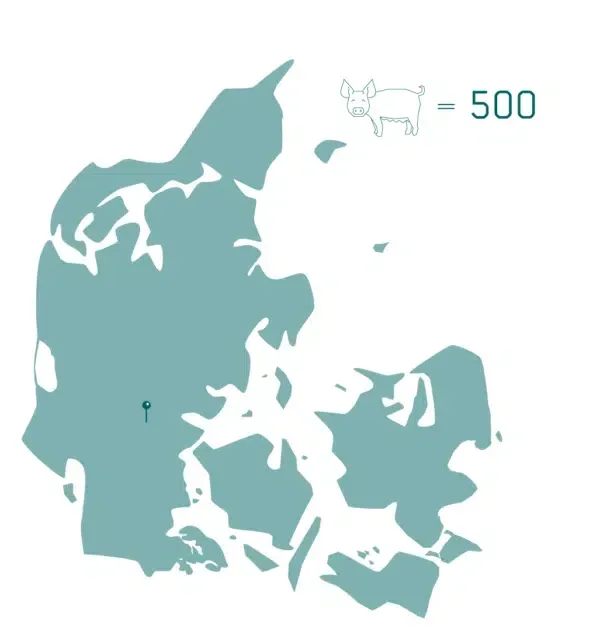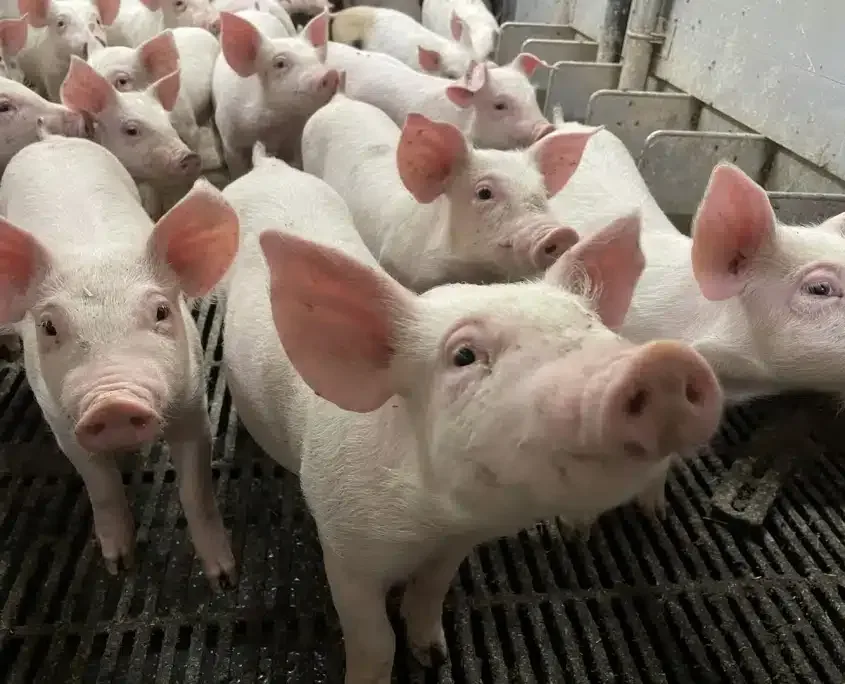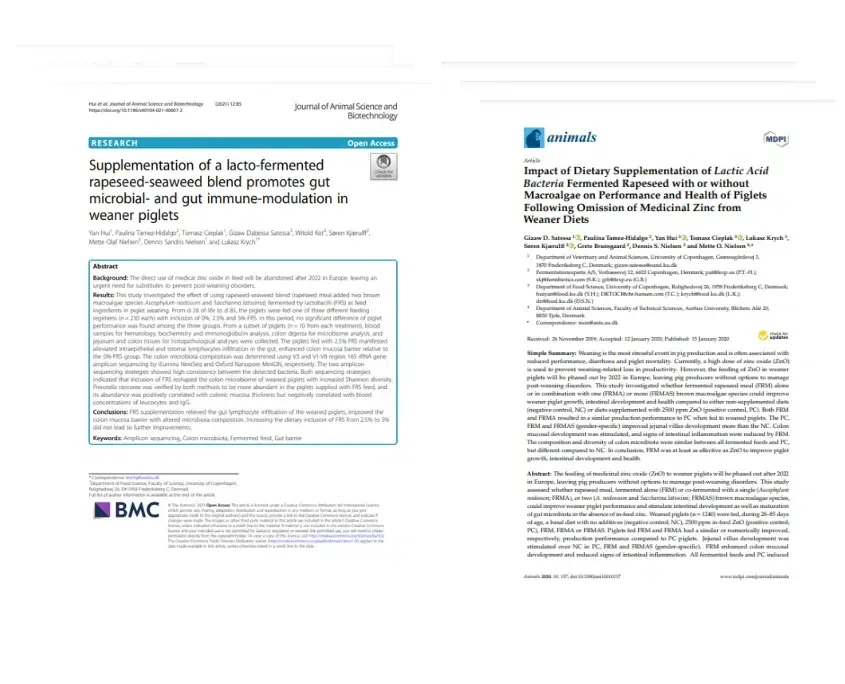Pig producer Hans Christian Gæmelke has reduced the inclusion of soy protein and replaced it with a fermented rapeseed meal in his home-mixed feed. An initiative that was initiated to improve gut health but now also provides a bonus in the climate report.
Hans Christian Gæmelke owns and operates Røj Agriculture in Southern Denmark. The farm includes 500 sows and produces 17,000 finishers. Additionally, H.C. manages 620 hectares of land in Jutland.
Climate-smart to feed rapeseed to pigs
When H.C. initially replaced soy protein with the fermented rapeseed protein EP100i, the motivation was not a lower CO2e- footprint but improved gut health. However, H.C. is pleased that the initiative helps produce healthy pigs and contributes to the growing climate agenda.

The pig producer doesn’t hide the fact that he’s keen to share the positive side effects that the switch has brought:
– It’s also no secret that all the school classes visiting are informed that we have replaced some of the soy protein with domestically produced rapeseed. So, it’s something I focus on. I haven’t used it in my ESG tool yet, but it’s clear that it’s a lever where I think, yes, I’m already on it”, the pig producer shares about his considerations.

H.C. uses EP100i in his weaning feed and the formulation for pigs weighing 9 to 30 kilograms. EP100i replaces eight per cent of soy protein in the weaning feed and three per cent of soybean meal and five per cent soy protein, respectively, in the blend for pigs weighing 9 and 30 kilograms. EP100i has saved Røj Agriculture 405 tons of CO2 equivalents annually, distributed with 32 tons in the weaning feed and 373 tons in the pig feed.
Copenhagen and Aarhus University have published articles on feeding trials with EP100i in the renowned journals Journal of Animal Science and Biotechnology and Animals. The trials documented that EP100i could replace soy protein with the same productivity and even with better intestinal development. Results that H.C. acknowledges:
– The pigs are healthier, and we haven’t struggled with ulcers like before, says the producer about the switch to EP100i.

Rapeseed is rich in protein, minerals, and vitamins and has favourable growing conditions in the EU. After the oil is pressed, by-products such as rapeseed cake or meal are used for animal feed. When European Protein ferments rapeseed meal with lactic acid bacteria, it can be fed to even the youngest pigs, thereby replacing soy protein for young animals.
Feed accounts for up to 70 per cent of a pig’s carbon emissions. With EP100i in piglet feed, you can become part of the solution for tomorrow – starting today.
If you would like to hear more about EP100i for piglets, please fill out the form below, and we will contact you via email or phone – completely obligation-free.